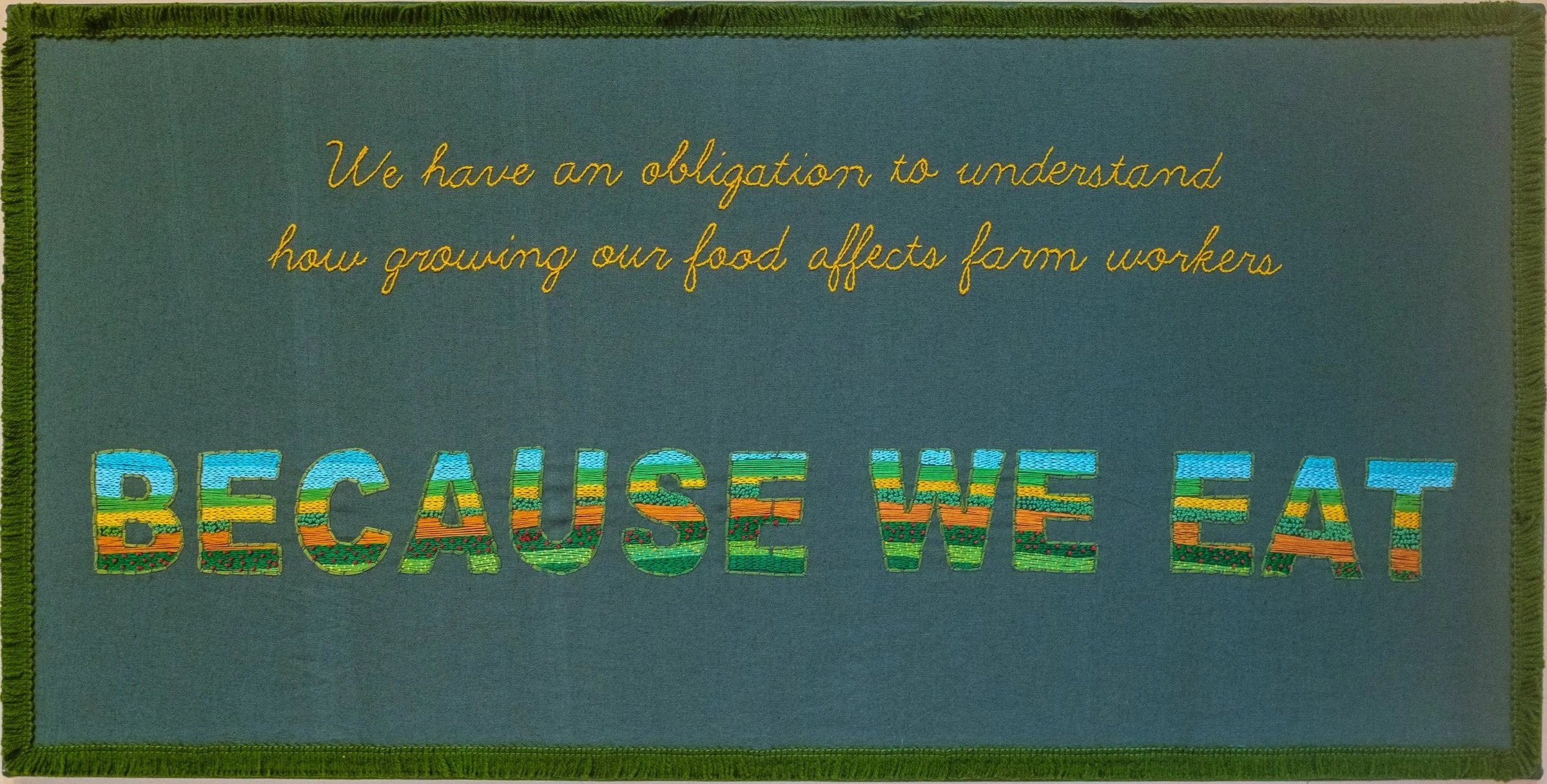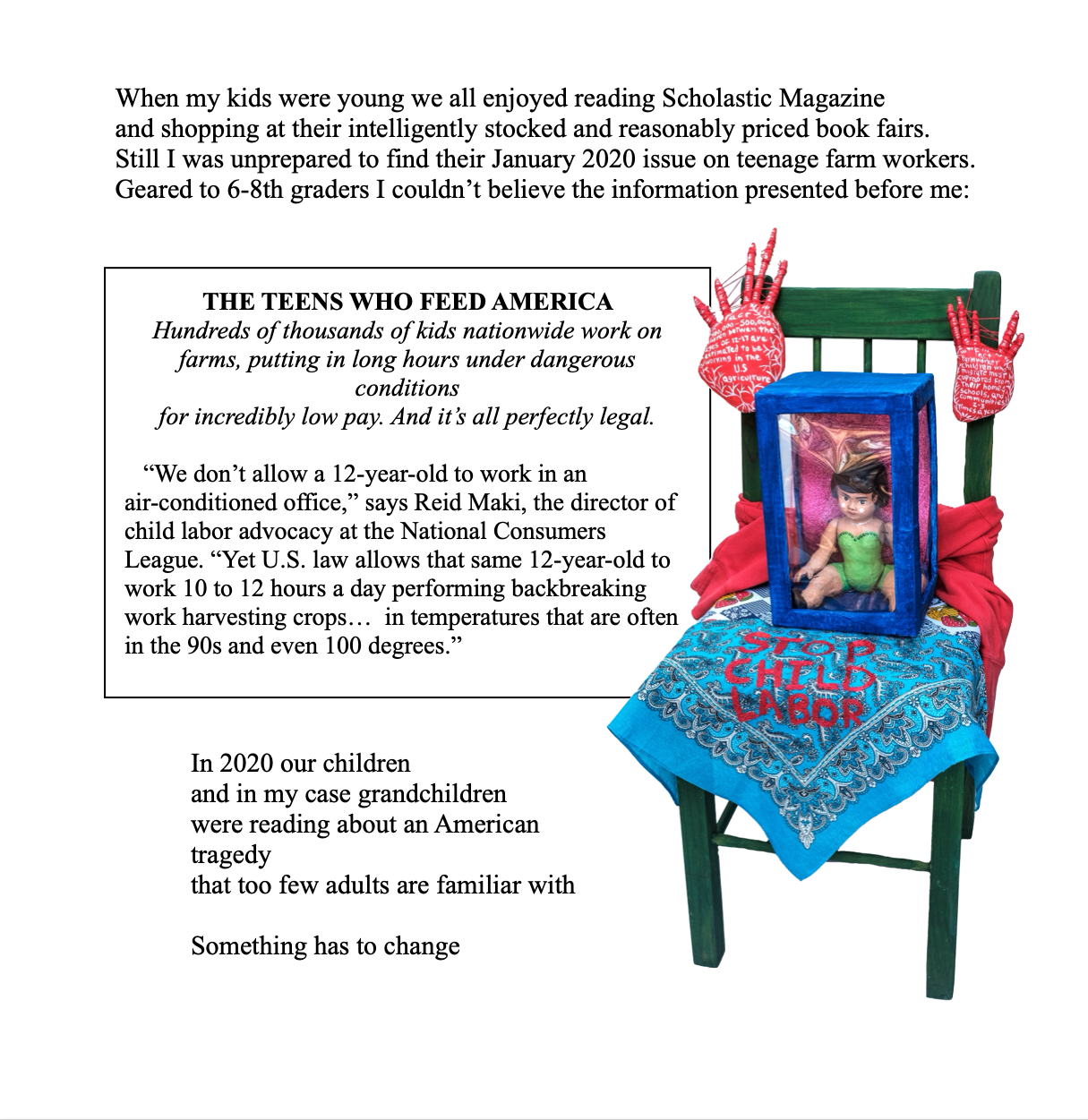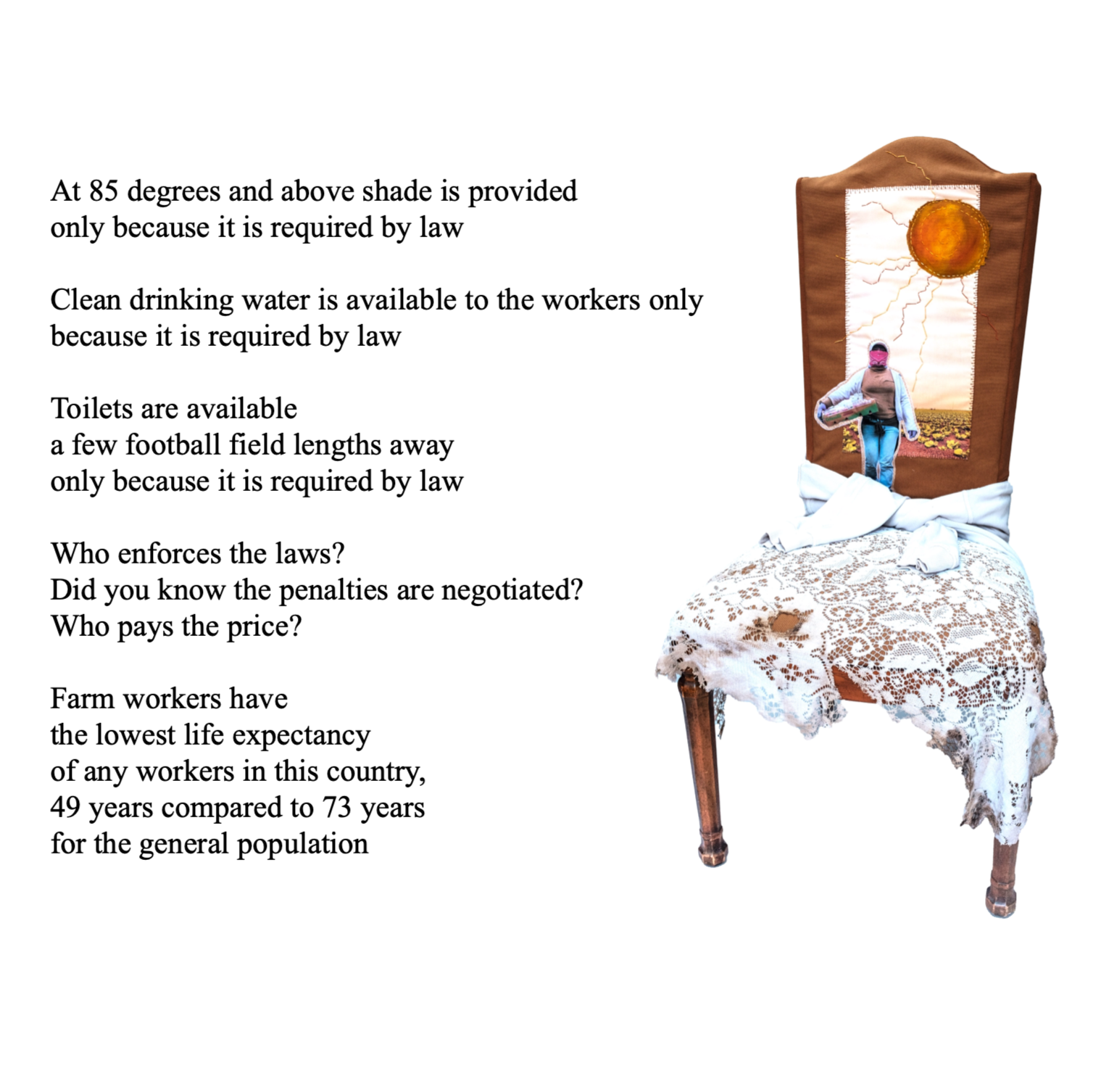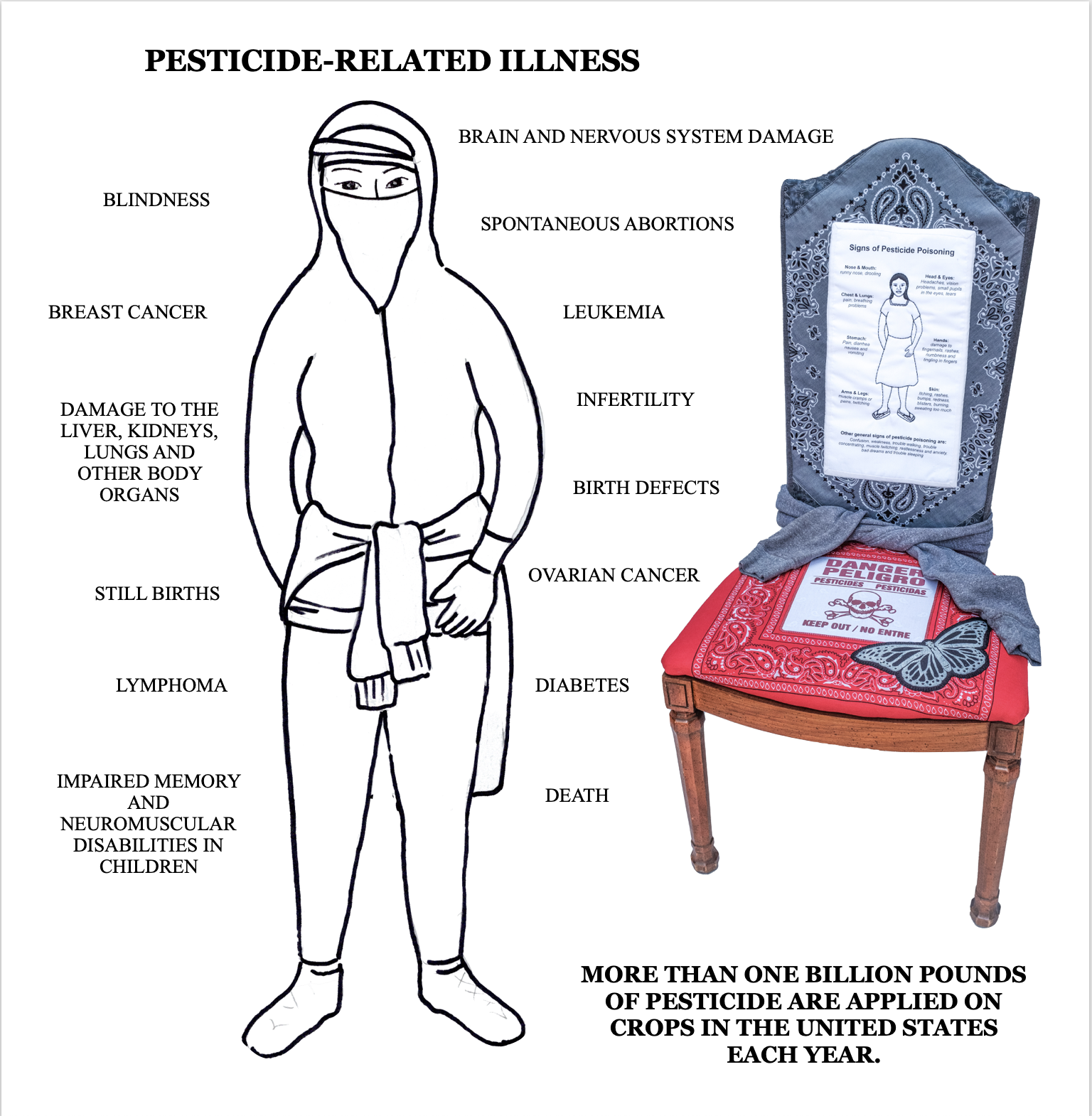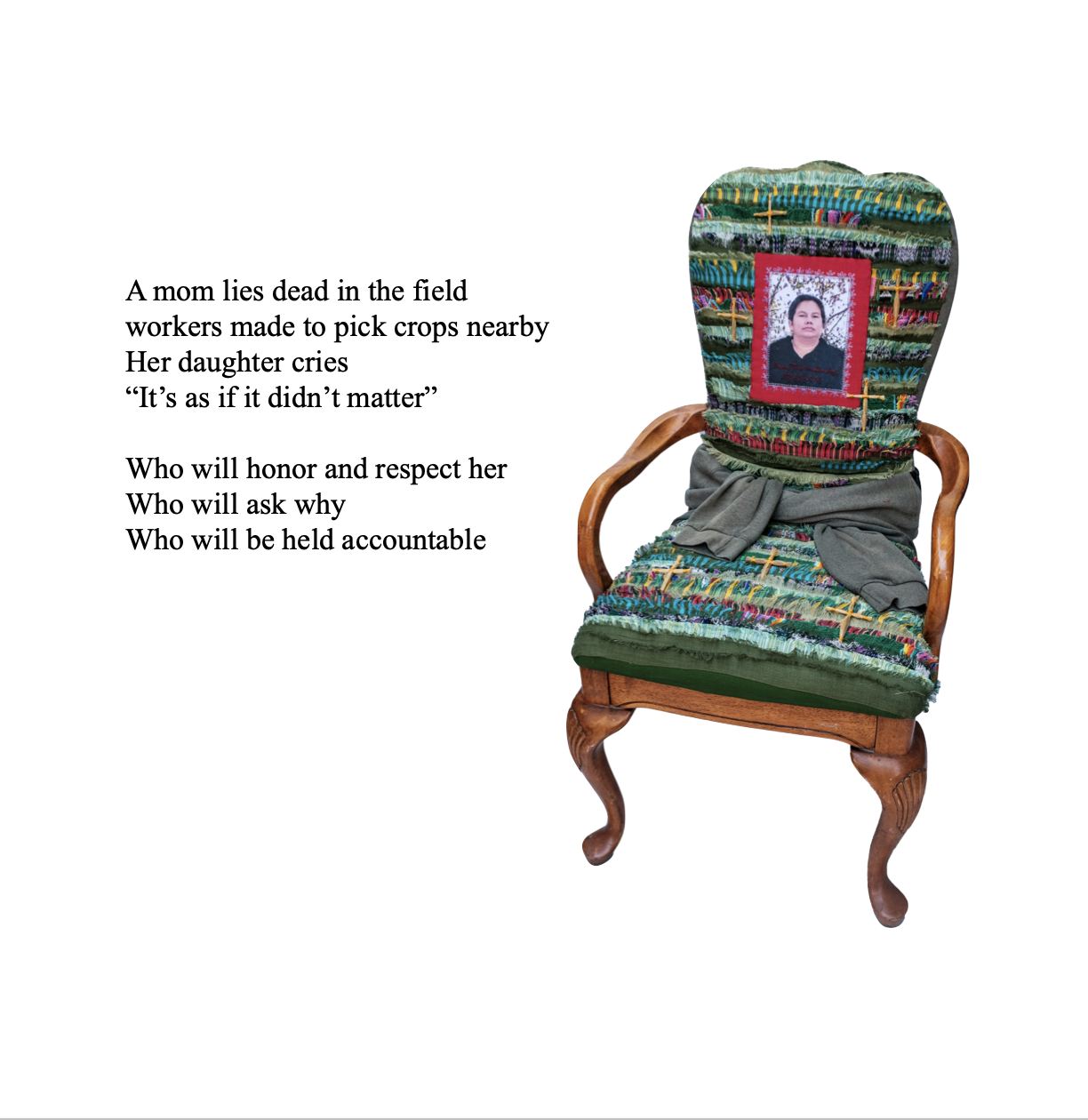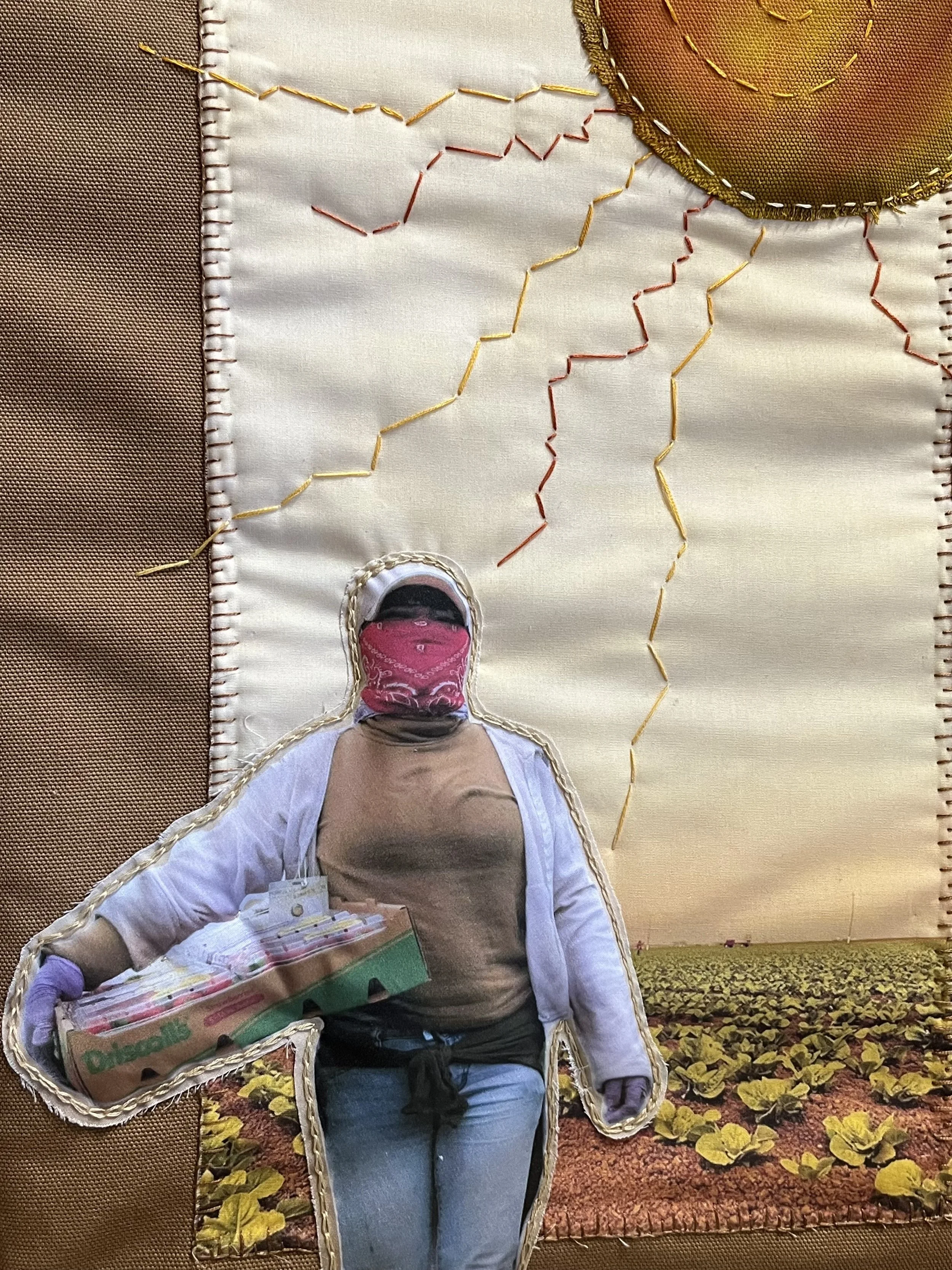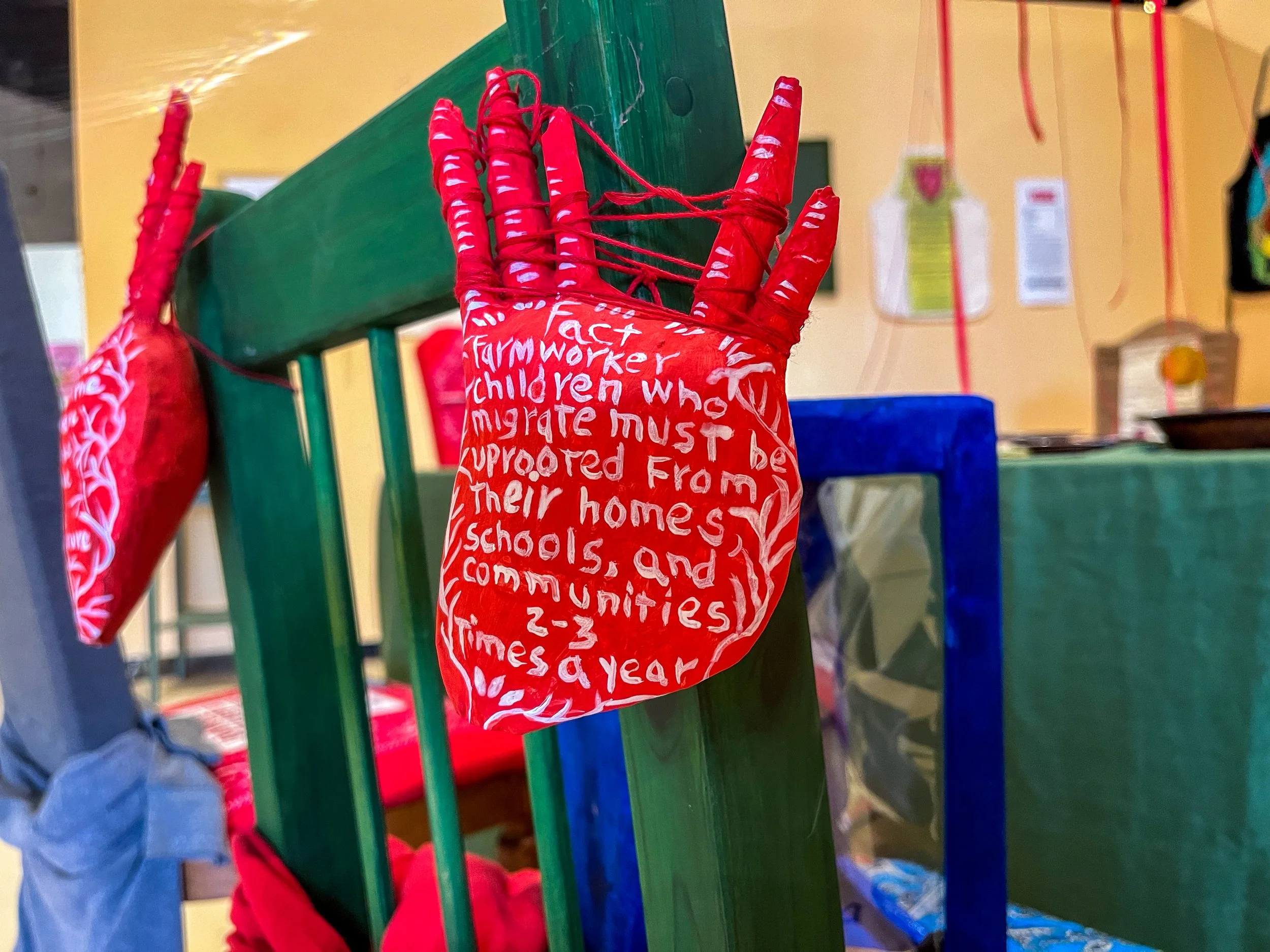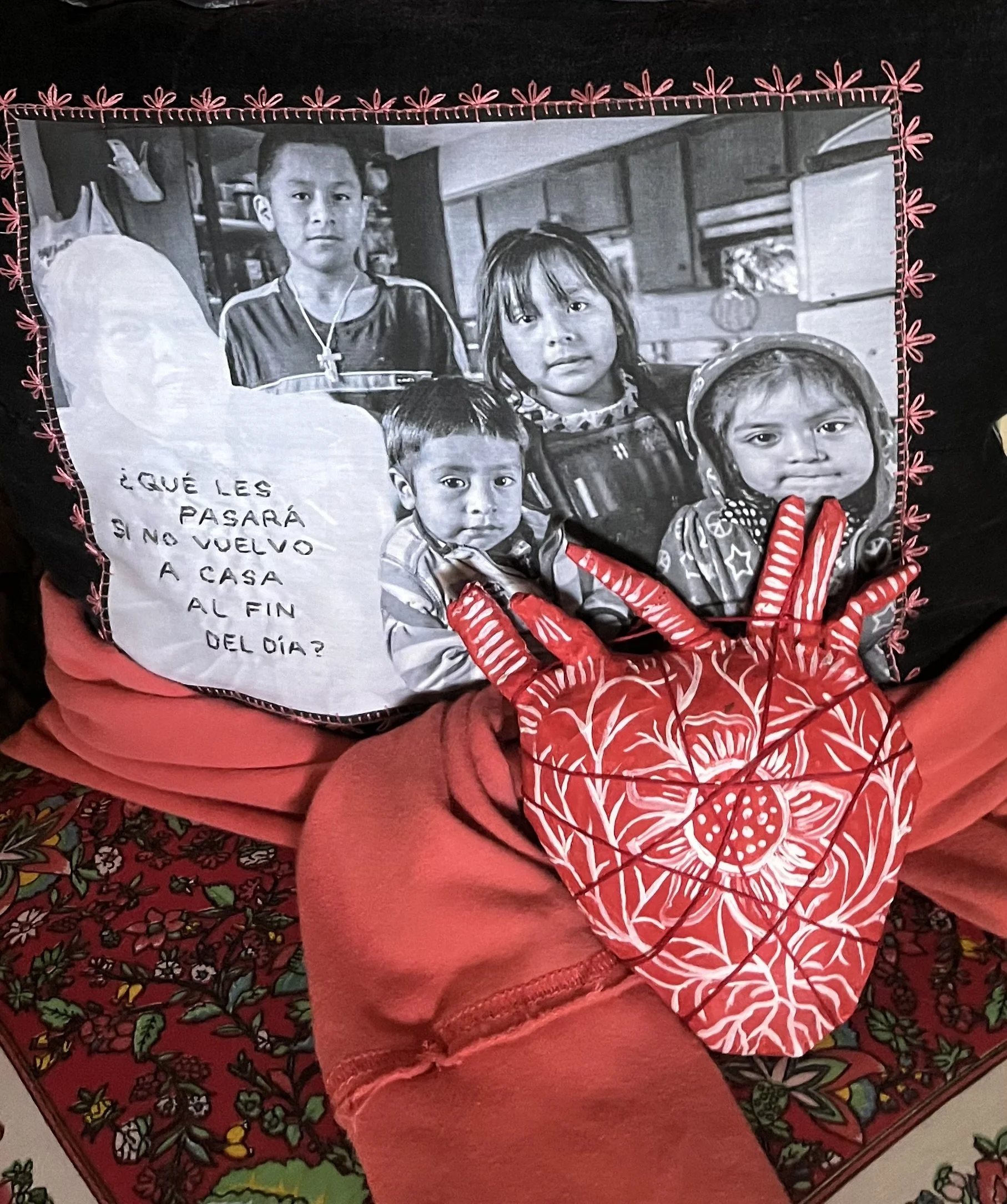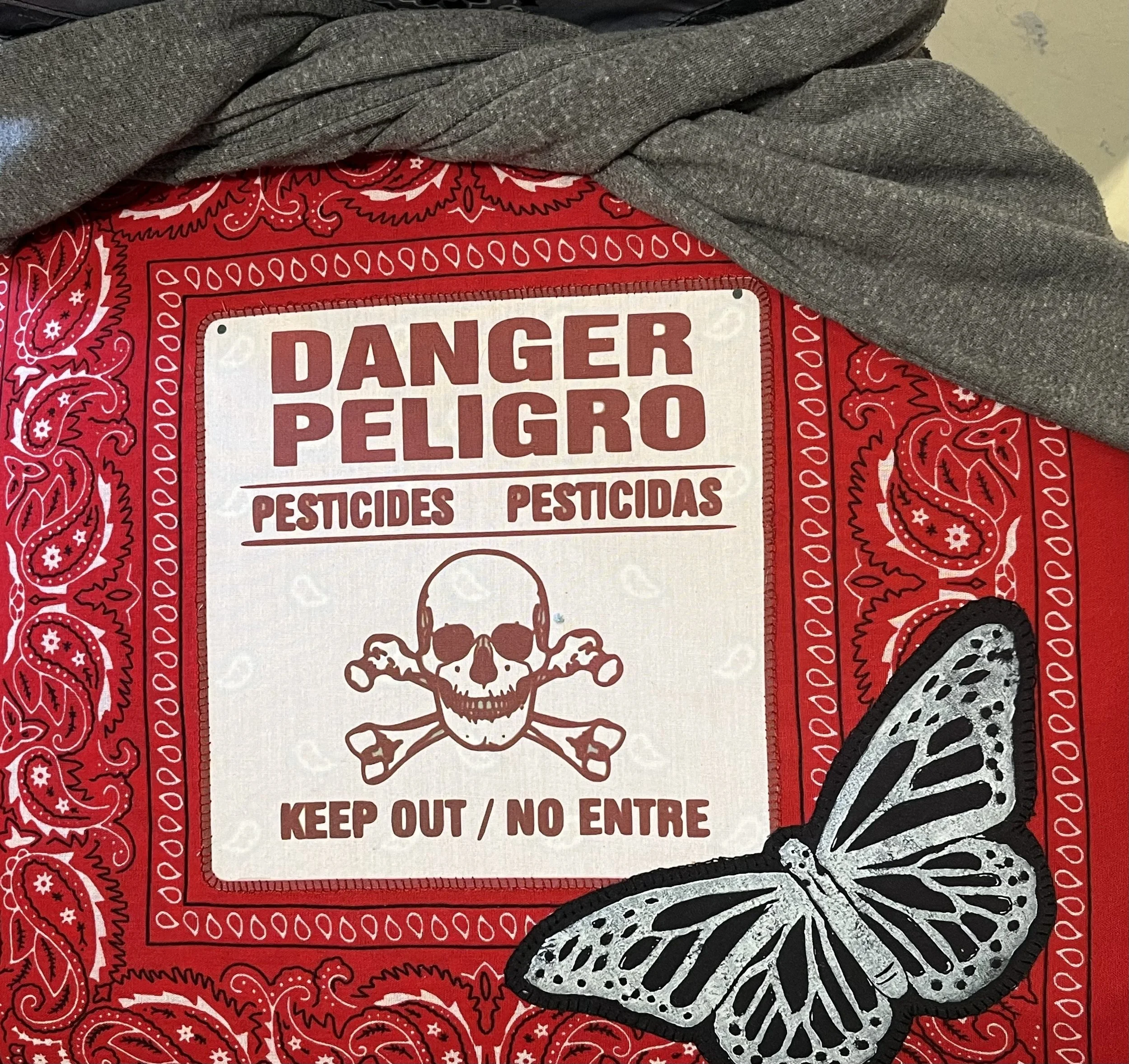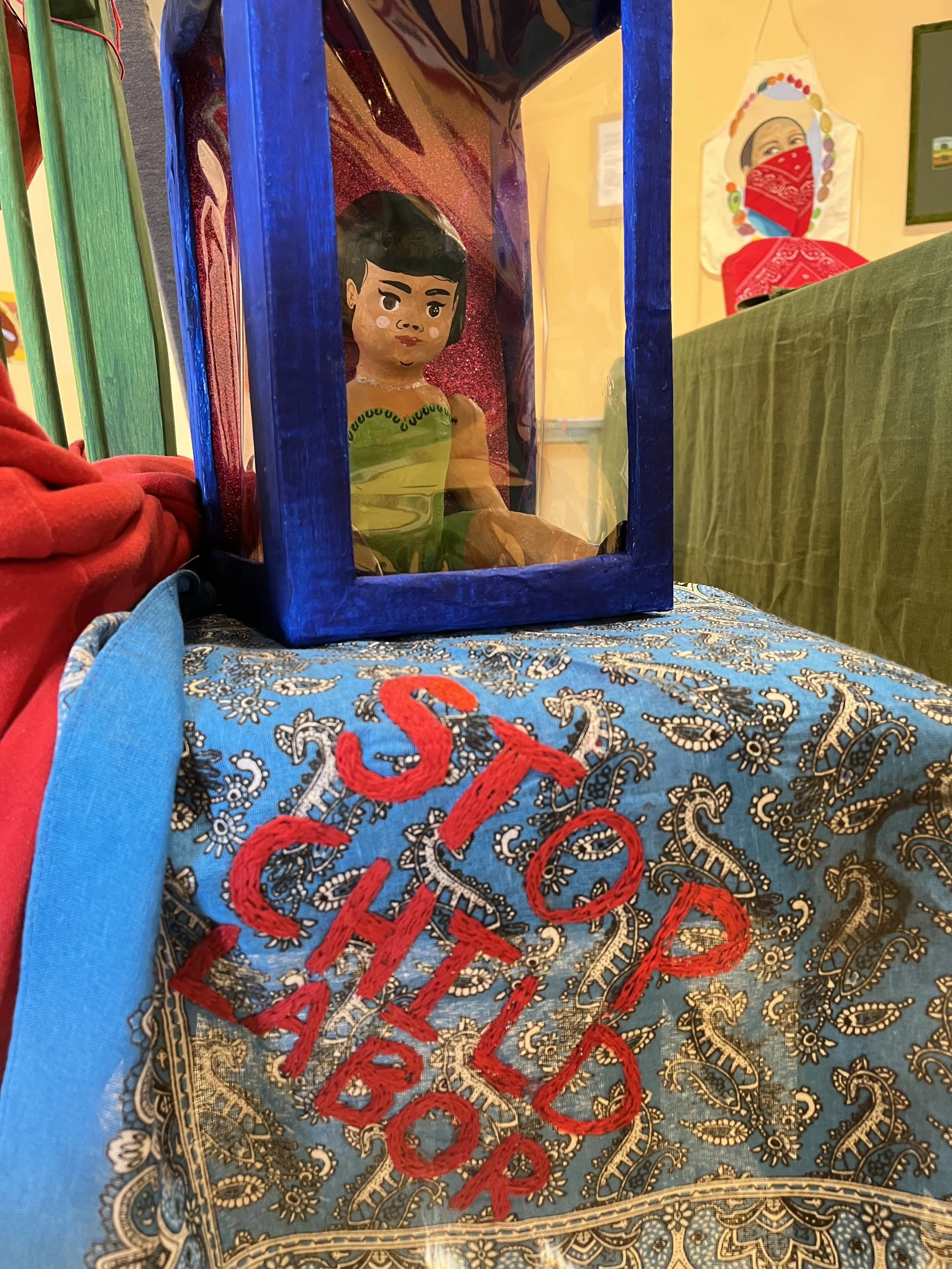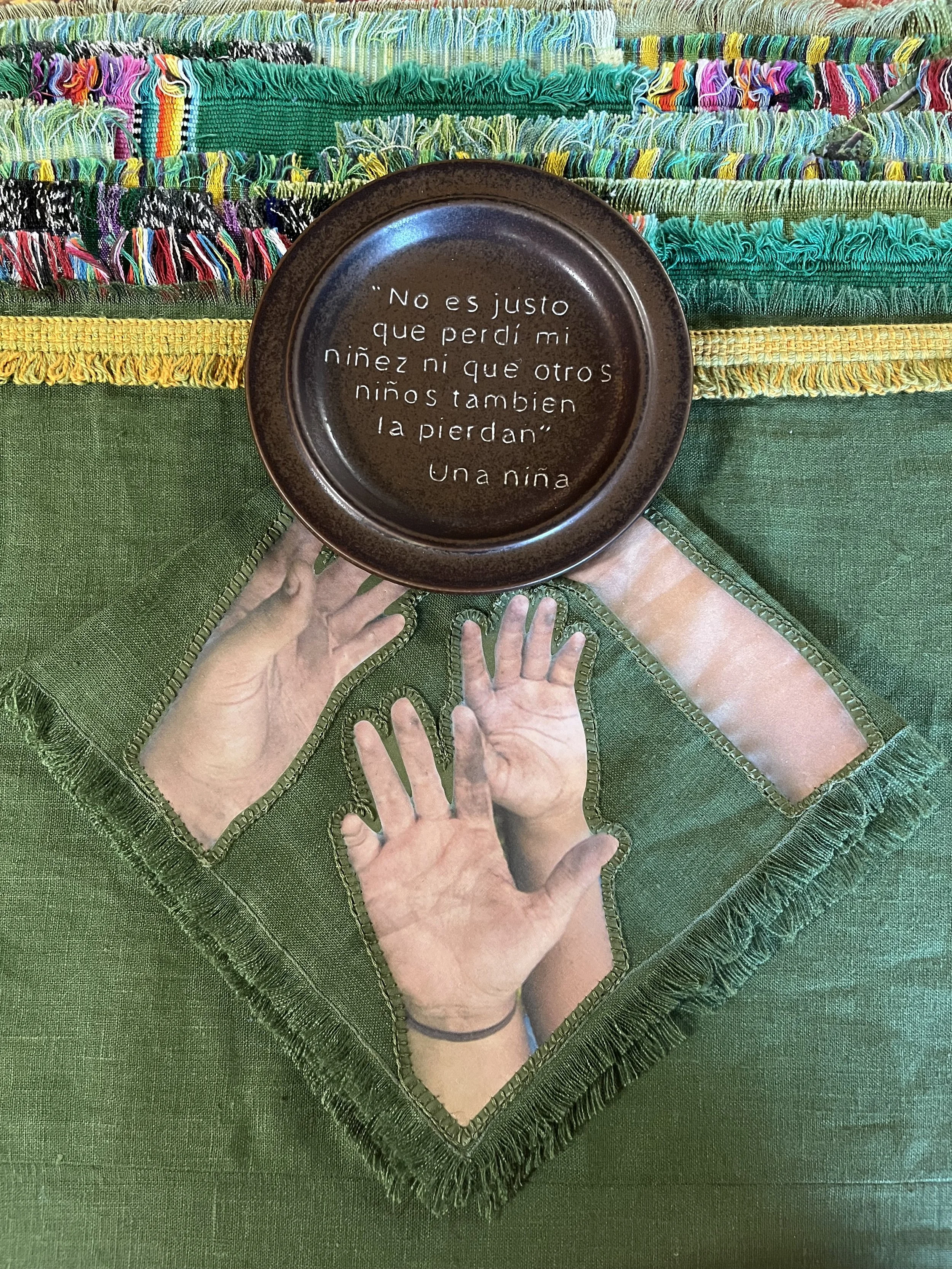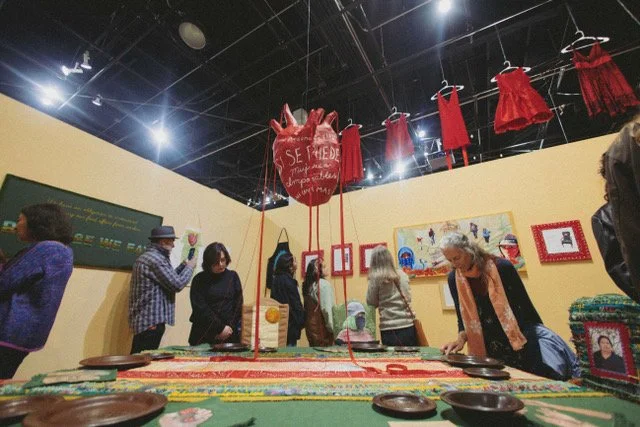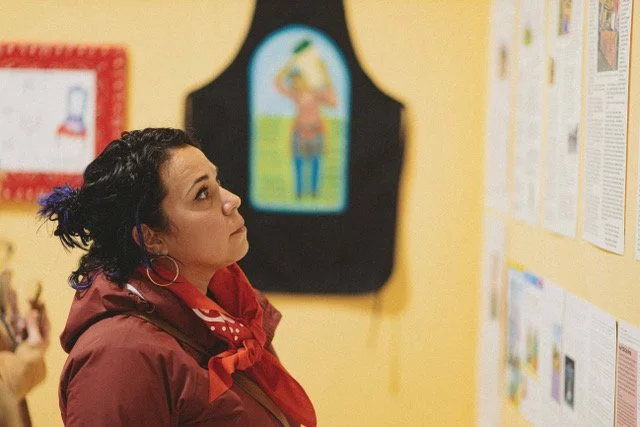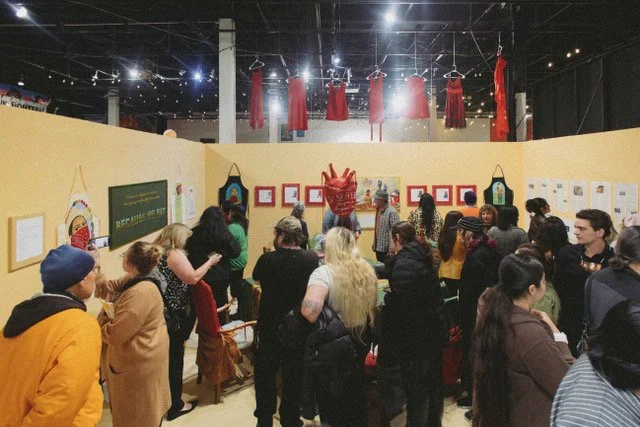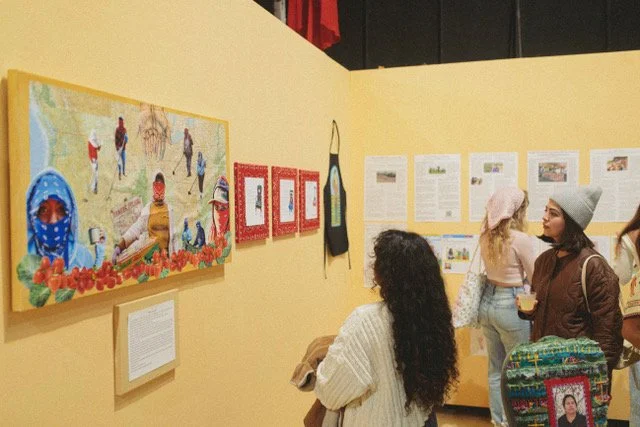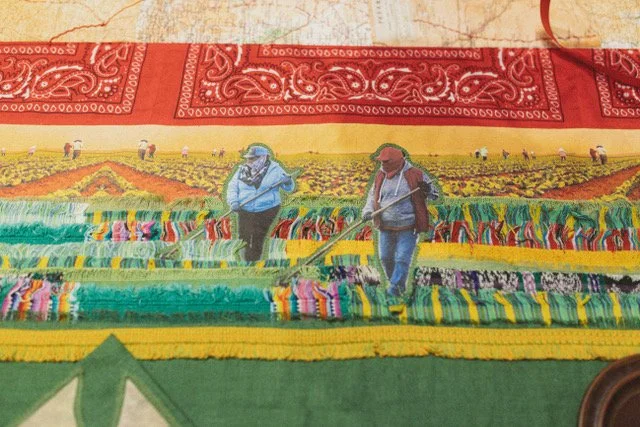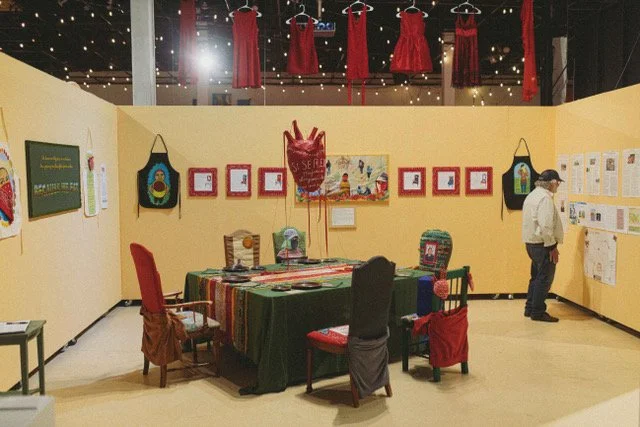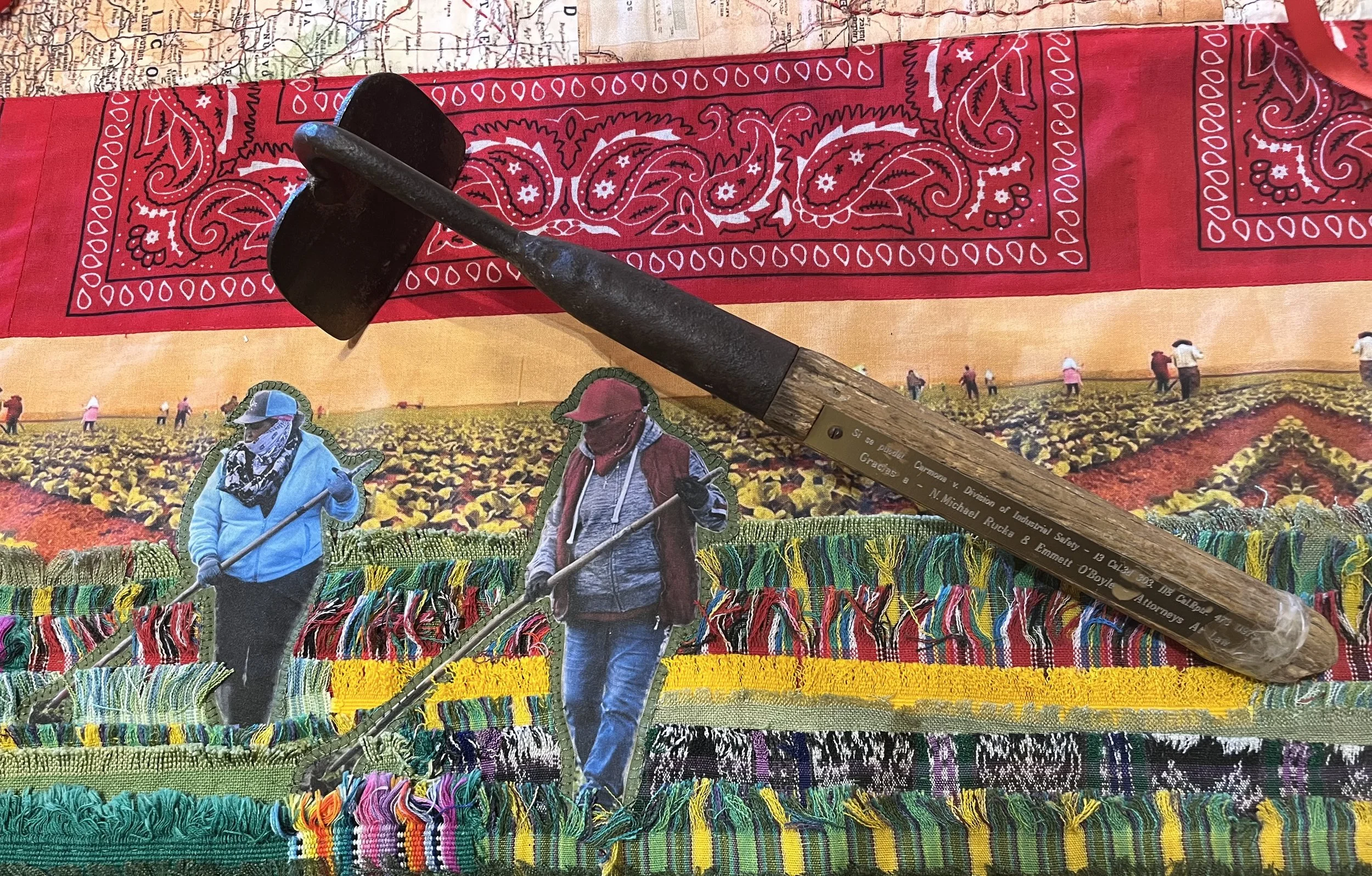Artist Statement
Farmworkers most often work under dangerous, unjust, and oppressive conditions
Every stitch sewn in this installation reflects our respoect for the hours farmworkers spend, the distances they travel, the heartaches they endure and the strengths they embody
May we remember to honor their work as we enjoy the fruits of their labor
BECAUSE WE EAT
This project evolved from an idea to its present form with the support, concern, skills, research, stitching, painting, sculpting, and love from many, including:
Bob Davis
Annette Greenwood
Laura Hernandez
Maricruz Alvarado
Nichole Schwab
Leeya Appleby
Drew Searing
Carol Jahnkow
Centro Cultrural de le Raza
Who is God?
I have no interest in “divine” hands from a god who decides fates of a whim or by a patriarchal merit system. I have no interest in a god who needs to be adored and pleaded with. I
I prefer to revere the hands of those who work, dream, and love; those who give willingly.
I prefer a trinity of women: Mother, Worker, Friend.
I prefer hands that bring us life, hands that feed us, women’s hands.
Most farmworkers have underlying health conditions—such as persistent musculoskeletal injuries, diabetes, coronary artery disease, and respiratory illnesses like asthma and chronic bronchitis—due to years of strenuous physical labor and exposure to pesticides, herbicides, and other toxic chemicals.
Long before COVID-19, Farmworkers have been wearing masks in an effort to protect themselves from these chemicals.
Workers without documents face tremendous uncertainty every morning; not knowing if they will be sexually abused, paid for their work, or be able to return home to their families at the end of the day. These workers face increasing danger due to the climate crisis, often working as fast as they can, not taking time to rest or drink water even in extreme heat, in order to bring home sufficient wages. If they drink water, they will need to use the restroom, often far away, which will take time and reduce their pay. One Salinas broccoli worker (pictured), a mother of two, copes with all of this as well as cancer and diabetes.
Farm workers are proud of their work. They know that without them, we would not have fruit and vegetables to eat.
Is there more important work?
This is the work from the hands of my gods.
No amount of layers of bandanas and sweatshirts can protect women migrant farm workers from:
HEAT
SEXUAL ASSAULT
PESTICIDES
DISCRIMIN-ATION
WAGE THEFT
SMOKE
and much less FEAR OF DEPORTATION
&
FAMILY SEPARATION
What they really need is legal status and a living wage
All of the abuses that migrant farm workers suffer could be remedied by legal status and a living wage ensuring safe working conditions keeping children out of the fields and ending cycles of generational poverty.
Agribusiness would like us to believe that raising the legal age for children to work in the fields from 10 to 14 would impact migrant families that need their children’s wages to survive
In what other industry do children go to work to supplement their parents’ unjust wages?
Agribusiness has scared us into believing that in order for farmworkers to earn a living wage we must pay drastically higher prices for our food.
Yet if workers earned slightly more money for each pound of food picked
as little as one 1¢ per pound
workers could rise out of poverty with a 40% increase in wages.
What would this increase in wages mean for your YEARLY grocery bill?
AN INCREASE OF $21

The Chairs
Family Separation
Child labor
Heat & Climate Change
Sexual Assault
Pesticides
Death in the fields
Each chair represents an aspect of what farmworkers face:

The Chairs
Family Separation
Child labor
Heat & Climate Change
Sexual Assault
Pesticides
Death in the fields
Each chair represents an aspect of what farmworkers face:
The Table
Hanging above the table as a chandelier is a heart. At each seat at the table is a embroidered napkin with the hands who grow our food paired with a quote from a farmworker etched on to a plate.
Let’s Connect
If you would like to host “Because We Eat,” let us know! We are passionate about highlighting the struggles that farmworkers face and would love to partner with you.


